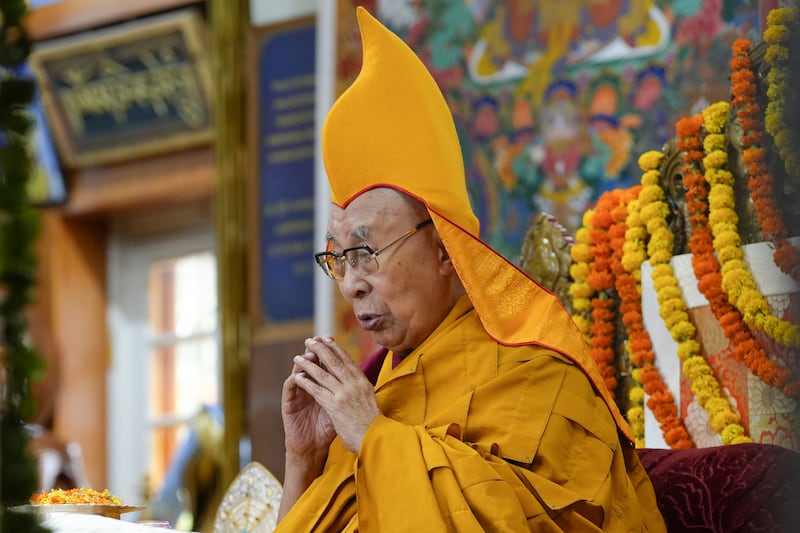Ahead of the Dalai Lama’s 90th birthday on July 6, U.S. lawmakers have introduced bipartisan resolutions in both chambers of the U.S. Congress to honor the Tibetan spiritual leader and designate the anniversary as ‘A Day of Compassion.’
The resolution – introduced in the U.S. House of Representatives on Friday and in the Senate on Tuesday – reaffirms that only the Dalai Lama himself should determine his successor and that any attempt by Beijing to select or appoint one would be an “invalid interference” and violation of religious freedom rights.
China has sought greater control over Tibetan Buddhism since invading the independent Himalayan country in 1950 and forcing the Dalai Lama into exile in India in 1959. In 2007, Beijing announced it would oversee the recognition of all reincarnate Tibetan lamas, including the next Dalai Lama.
Senator Jeff Merkley (D-Oregon), who co-introduced the Senate resolution with Todd Young (R-Indiana), emphasized the broader stakes. “As the Chinese government continues to ignore the rights of Tibet under international law, we’re sending the message that we must protect these fundamental freedoms,” Merkley said.
In the House, Representatives Michael McCaul (R-Texas) and Jim McGovern (D-Massachusetts) introduced a similar resolution recognizing the Dalai Lama’s “outstanding contributions to peace, nonviolence, human rights, and religious understanding.”
“Despite having faced persecution, oppression, and unspeakable violence at the hands of the CCP, His Holiness the Dalai Lama has maintained inner peace and continues to preach compassion – inspiring not only his own people, but the entire world,” said McCaul. CCP refers to the Chinese Communist Party.
McCaul last year led a bipartisan Congressional delegation to Dharamsala, India, where he presented the Dalai Lama with a framed copy of a U.S. bill, that was later signed into law, in support of Tibetan people’s right to self-determination.
“The people of Tibet have an inalienable right to self-determination, and our resolution reaffirms the United States’ commitment to Tibetans by supporting their basic human rights, religious freedom, culture, and language,” said Merkley.

In recent years, China has sought to control the reincarnation process of Tibetan religious leaders in an apparent attempt to appoint the Dalai Lama’s successor.
But in his new book titled “Voice for the Voiceless,” the Dalai Lama has said that his successor would be born in the “free world,” which he described as outside China.
“The new Dalai Lama will be born in the free world so that the traditional mission of the Dalai Lama – that is, to be the voice for universal compassion, the spiritual leader of Tibetan Buddhism, and the symbol of Tibet embodying the aspirations of the Tibetan people – will continue,” the Dalai Lama said in the book.
The latest resolution reiterates that the selection and installation of Tibetan Buddhist religious leaders are within the authority of the Tibetan Buddhist community.
“I’m proud to stand with the Dalai Lama and the people of Tibet in their struggle for freedom and peace against the Chinese Communist Party’s continued aggression. The CCP’s status quo – both in Tibet and elsewhere – is not acceptable,” said Young.
The resolution is co-sponsored by a group of bipartisan lawmakers including Reps. Joe Wilson (R-S.C.), Raja Krishnamoorthi (D-Ill.), and Young Kim (R-Calif.), and Senators Jeanne Shaheen (D-NH), John Curtis (R-UT), and Dan Sullivan (R-AK).
Both resolutions have to be approved by committee and then voted on by each chamber before passage.
Written by Tenzin Pema. Edited by Mat Pennington.



